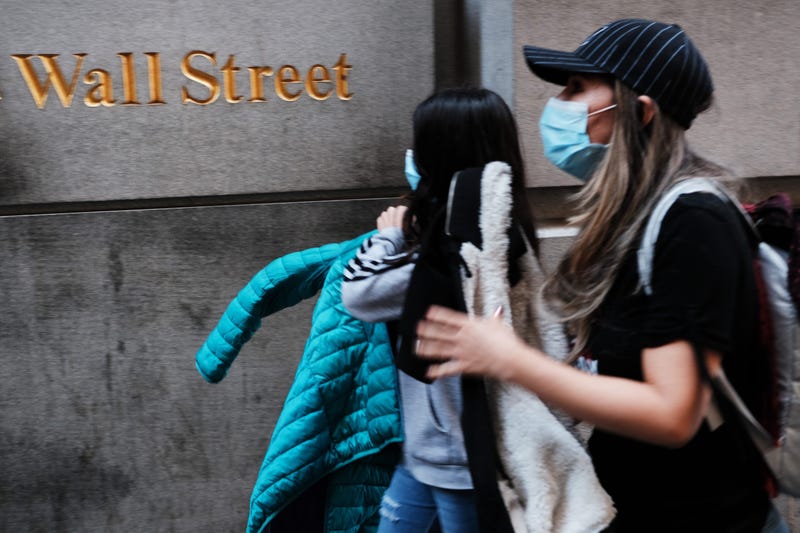
ATLANTA (AP) — As the global death toll from the coronavirus surpassed 200,000 on Saturday, countries took cautious steps toward easing some lockdowns, while fears of infection made even some pandemic-wounded businesses reluctant to reopen.
The states of Georgia, Oklahoma and Alaska started loosening restrictions on businesses despite warnings from experts that such steps might be coming too soon. Some owners said they weren’t yet ready to reopen or were doing so only on a limited basis, worried about a second surge of COVID-19 infections.
“We’ve sacrificed so much already,” said Shawn Gingrich, CEO and founder of Lion’s Den Fitness, who decided after the Georgia governor’s announcement that he would not be reopening his Atlanta gym right away. “I feel like if we do this too soon, we’ll see a spike in cases and we’re back to square one.”
The worldwide death toll topped 200,000, according to a tally compiled by John Hopkins University from government figures. The actual death toll is believed to be far higher.
In India, easing restrictions meant reopening neighborhood stores that many of the country’s 1.3 billion people rely on for everything from cold drinks to mobile phone data cards. But the loosening didn’t apply to hundreds of quarantined towns and other places hit hardest by the outbreak that has killed at least 775 people in the country and terrified its multitudes of poor who live in slum conditions too crowded for social distancing.
Shopping malls also stayed closed nationwide. Still, for families that run small stores, being able to earn again brought relief.
“This is a good decision,” said Amit Sharma, an architect. “We have to open a few things and let the economy start moving. The poor people should have some source of income. This virus is going to be a long-term problem.”
Last week, India also allowed manufacturing and farming to resume in rural areas to ease the economic plight of millions left jobless by the lockdown imposed March 24. India’s restrictions have allowed people out of their homes only to buy food, medicine or other essentials.
Elsewhere in Asia, authorities reported no new deaths Saturday for the 10th straight day in China, where the virus originated.
And South Korea reported just 10 fresh cases, the eighth day in a row its daily jump came below 20. There were no new deaths for the second straight day.
In an announcement that underscored the scientific unknowns about the virus, the World Health Organization said “there is currently no evidence” that people who have recovered from COVID-19 cannot fall sick again.
Some countries extended or tightened restrictions, confirming a pattern of caution.
Sri Lanka had partially lifted a monthlong daytime curfew in more than two thirds of the country. But it reimposed a 24-hour lockdown countrywide after a surge Friday of 46 new infections, the highest increase in a day on the Indian Ocean island. The new curfew remains in effect until Monday.
Norway extended until at least Sept. 1 its ban on events with more than 500 participants.
“I really want to get outside, and Ema does as well,” said Madrid resident Eva Novilo, whose daughter Ema is 7. But Novilo predicted “difficult situations” if they see Ema’s friends and have to stay apart. “I don’t know if we will be able to maintain control.”
The country continues to have Europe’s highest death toll, with 26,384 deaths. The 415 deaths registered in the 24-hour period that ended Saturday evening was the lowest toll since Italy registered 345 on March 17, but only five fewer than Friday.
In France, the government is preparing to gingerly ease one of Europe’s strictest lockdowns from May 11. The health minister detailed plans to scale up testing to help contain any new flare-ups.
Testing shortages are a critical problem elsewhere, too, including in Brazil, Latin America’s largest nation, which is veering closer to becoming a pandemic hot spot.
Medical officials in Rio de Janeiro and four other major cities warned that their hospital systems are on the verge of collapse or already overwhelmed. In Manaus, the biggest city in the Amazon, officials said they have been forced to dig mass graves in a cemetery. Workers have been burying 100 corpses a day — triple the pre-virus average.
On Friday, President Donald Trump spoke optimistically of the economy but also asked people to continue social distancing and using face coverings. The same day, he signed a $484 billion bill to aid employers and hospitals. In the past five weeks, roughly 26 million people have filed for jobless aid, or about 1 in 6 U.S. workers.
Trump also said his widely criticized comments suggesting people can ingest or inject disinfectant to fight COVID-19 were an attempt at sarcasm.
In Texas, where restrictions have been eased to allow retailers to sell items for curbside pickup, Allison Scott said her women’s clothing store in a Dallas shopping mall has done a few “to go” orders but most customers seem to still feel more comfortable ordering online. Scott says that as much as she’d like to see things return to the way they were and people allowed to shop in person, she thinks it’s too risky health-wise right now, and can’t see people wanting to come either.
“I want to be open more than anything but I don’t think that society is ready to come out either,” she said.
